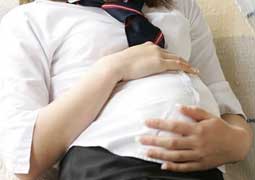
Parliament, Tuesday, 7 September 2021 – The Portfolio Committee on Basic Education unanimously agreed that a holistic approach is required to deal with reducing teenage pregnancy in South Africa. Teenage pregnancies appear to be on the increase since the start of the Covid-19 pandemic that saw an initial total lockdown.
The Department of Basic Education (DBE) today briefed the committee on its programmes to address this matter. It informed the committee that girl learners do not drop out of school because they fall pregnant. Rather, they fall pregnant because they drop out of school. The committee further heard that approximately 33% of girls do not return to school after falling pregnant and are likely to experience multiple pregnancies.
Committee Chairperson Ms Bongiwe Mbinqo-Gigaba said this is an emotional matter that needs to be addressed by society at large, as it is broader than the DBE. “We need a holistic approach,” she said.
The committee heard the impact of Covid-19 on gender-based violence and teen pregnancies in South Africa spiked within the first week of the total lockdown with 37%. The DBE said children are often victims/witnesses of domestic violence, which was exacerbated during the lockdown. School closures and containment measures resulted in a loss of education and social protections, especially for adolescent girls. This resulted in significant increases in teen pregnancy, sexual exploitation, sexual violence and forced/early marriages in sub-Saharan Africa.
The committee heard that 30% of teenage girls in South Africa fall pregnant and more than 65% of these are unplanned pregnancies. According to the statistics of delivery in medical facility for all provinces, the Northern Cape between April 2020 and March 2021 had the highest number of teen pregnancies (19.3%), followed by the Eastern Cape with 17.1%, KwaZulu-Natal 16.5% and Mpumalanga 15.5%. Gauteng recorded the fewest teen pregnancies with 8.9%. These are recorded pregnancies of girls between 10 and 19 years old.
Regarding Comprehensive Sexuality Education (CSE), as taught by DBE in schools, the committee heard that the curriculum is different from sex education, which speaks to how. CSE is a curriculum-based process of teaching and learning about the cognitive, emotional, physical and social aspects of sexuality. CSE is offered in a formal setting and is scientifically accurate and culturally relevant. It is based on a human-rights approach and aims to equip children and young people with knowledge, skills, attitudes and values that will empower them.
The DBE said CSE addresses relationships and is developmental and age-appropriate. It does not compromise the innocence of the child, addresses the psychological, emotional, mental and physiological aspects of the human being and includes morals, life skills and values. The DBE denied that CSE leads to early sexual initiation and said instead it leads to later and more responsible sexual behaviour.
Ms Mbinqo-Gigaba said all members of the committee raised concerns about the prevalence of teen pregnancies. She said in many cases, background and culture do not permit families to discuss sexuality education in the home. “In some instances, kids don’t even see their parents sober, let alone have a conversation with them. Conversations regarding teen pregnancies and sexuality education are important if we want to turn the tide and save our children, especially the girl children, as they tend to carry the consequences should they fall pregnant. It is not just the responsibility of DBE, but all of society needs to tackle this matter.”
ISSUED BY THE PARLIAMENTARY COMMUNICATION SERVICES ON BEHALF OF THE CHAIRPERSON OF THE PORTFOLIO COMMITTEE ON BASIC EDUCATION, MS BONGIWE MBINQO-GIGABA.
For media enquiries or interviews with the Chairperson, please contact the committee’s Media Officer:
Name: Rajaa Azzakani (Ms)
Tel: 021 403 8437
Cell: 081 703 9542
E-mail: razzakani@parliament.gov.za

